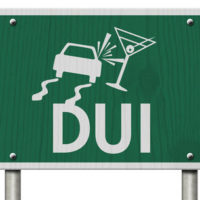Common Defenses In DUI Cases

In 2014, Florida Highway Patrol officers issued almost 50,000 DUI citations. When these cases go to court, prosecutors try to use the per se section of the DUI law as much as possible; this section states that if the defendant had a BAC above the legal limit, then the defendant is guilty of DUI as a matter of law. In other cases, prosecutors must use circumstantial evidence to prove intoxication.
As a brief side note, criminal defense lawyers are divided when it comes to taking or not taking the test. There are those who say it’s a good idea to refuse it, because the prosecutor does not need your help to obtain a conviction. On the other hand, there’s an old saying that if a person falls into a hole, the first thing to do is stop digging. And, especially since Florida has a refusal-to-submit law, the negative consequences to refusal are too great.
What are the available defenses in test and refusal cases?
DUI Test Cases
Most DUI test cases involve Breathalyzers. Even though a blood draw is more accurate, officers must obtain search warrants to obtain blood samples, and in most cases, officers aren’t willing to go the extra mile.
Once the jury understands how Breathalyzers work, they are usually more inclined to believe that they might be inaccurate. The technology in Breathalyzers today is not much different from the tech used in 1950s-era devices, so the same bugs that existed then still exist now, at least to some extent. Second, Breathalyzers measure breath alcohol, and then use that figure to estimate blood alcohol level. In many areas of life, including scientific tests, things get lost in translation. Third, today’s Breathalyzers have so many bells and whistles that if they are not properly calibrated and used by experienced operators, their results are questionable.
All these general flaws open the door for case-specific arguments to the results, including:
- Mouth Alcohol: Officers must continually monitor defendants for at least fifteen minutes prior to the test. If the officer looks away for even a half second, the defendant could burp or belch, releasing mouth alcohol that skews the results.
- Absorption: The body absorbs distilled spirits much more slowly than beer or wine, so if the defendant had a shot of anything in the last hour, the breath alcohol level will be artificially high.
- Acetone: Diabetics, smokers, and some dieters all have high levels of these particles in their blood, and Breathalyzers normally register acetone as ethanol.
These flaws are particularly relevant in borderline BAC cases, such as a .09 or maybe even a .10.
DUI Refusal Cases
If the defendant does not submit to a chemical test, the prosecutor must prove intoxication, which is basically a loss of the normal use of mental or physical faculties. To establish legal impairment, the prosecutor almost always relies on the three approved field sobriety tests, which are:
- One-leg stand,
- Walk and turn (walking a straight line), and
- Horizontal gaze nystagmus (following a moving object without moving the head).
Prosecutors must first establish a baseline for that person’s “normal” physical and mental faculties, a process that is easier said than done. Second, the prosecutor must prove that the impairment is because of alcohol as opposed to fatigue, nervousness, or anything else.
Rely on Assertive Attorneys
There are effective defenses in both DUI test and refusal cases. For a free consultation with an experienced criminal defense lawyer in Port St. Lucie, contact Eighmie Law Firm, P.A. Jail visits are available.


